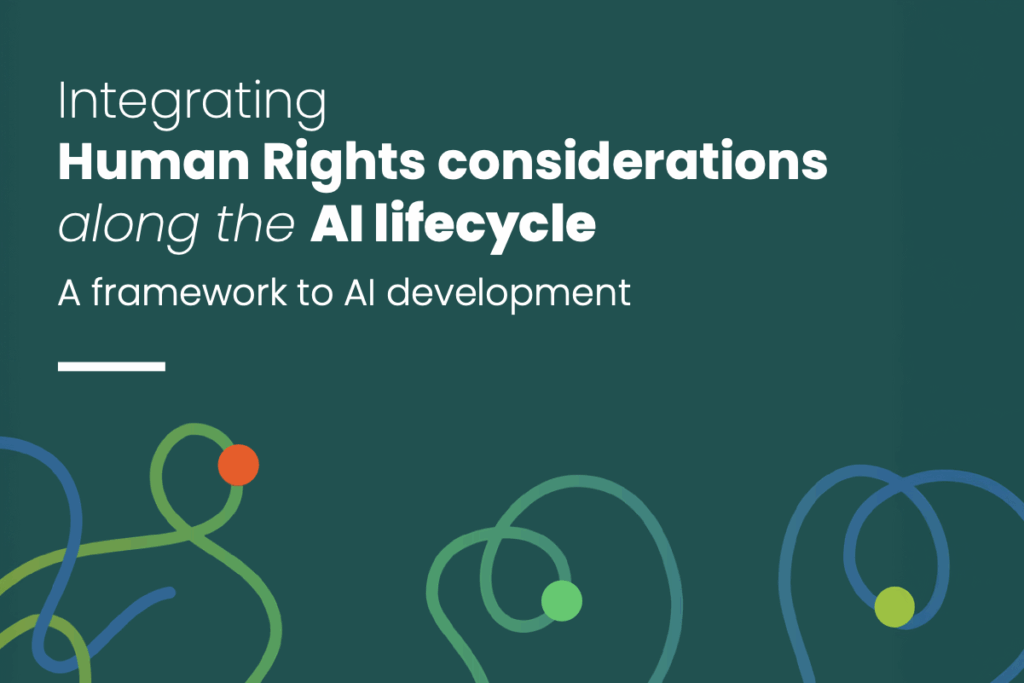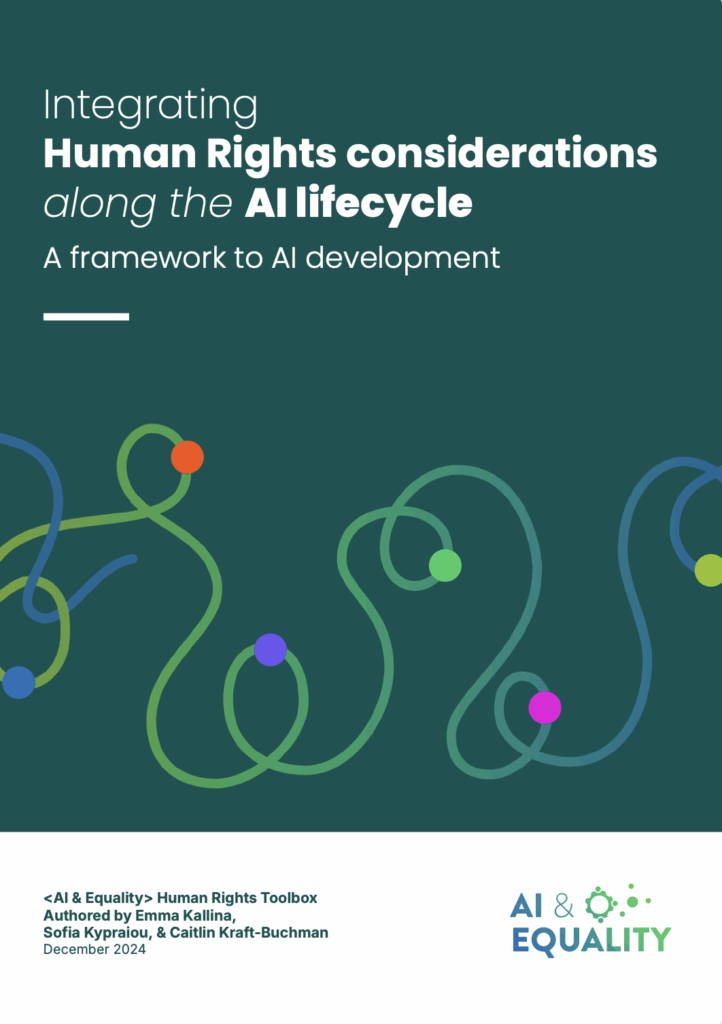Current research highlights the potential for AI systems to adversely affect individual and collective Human Rights if developed without careful consideration. By incorporating critical analysis and reflection points regarding Human Rights impacts during AI development, such harms can be mitigated or prevented completely. This white paper outlines our <AI & Equality> framework that enables such an approach, going even further and promoting AI development that is driven by the wish to promote human dignity.
The framework consists of the essential questions and reflection points that are relevant at each of the six stages of the AI lifecycle, ensuring that Human Rights impacts are considered as they become relevant (vs after the system is already completed). Integrating the Human Rights Impact Assessment of the Alan Turing Institute with our practical Human Rights-based approach to the AI LifeCycle and AI Development, this methodology facilitates compliance to upcoming policy requirements such as the Human Rights Impact Assessment of the EU AI Act.
However, our goal is to move beyond mere compliance and towards a paradigm of AI development that proactively promotes the achievement of Human Rights – vs mitigating risks as an add-on or after harms have already occurred. By involving affected communities from the outset and with substantial decision agency, we promote and enable the development of systems that center Human Rights, equality, and inclusion at the core of code, capable of creating new opportunities and innovative correction of inequities. We hope to bring social programs in line with 21st century research and values, united in finding ways to make AI more effective – not merely more ‘accurate’ and ‘efficient’.
This white paper covers:
What is the Purpose of a Human Rights-based approach?
Why a Human-Rights based approach vs “Ethical” or Responsible AI?
The AI Lifecycle
Essential Questions per AI Lifecycle Stages
We want to emphasise that these questions – at the bare minimum – facilitate the creation of technology that complies with the Human Rights principles of Equality & Non-Discrimination, Participation & Inclusion, Accountability & the Rule-of-Law. However, these questions may help to go beyond mere compliance and allow the creation of technologies that are:
- guided by Human Rights principles,
- contribute to their access and fulfillment, and
- aspire to empower humans & duty-bearers to achieve and enjoy their Human Rights.
Going forward, this may allow us to not only ’leave no one behind’, but to bring everyone with us, enhancing human dignity as we create new technologies.





